
 Data information knowledge wisdom
Data information knowledge wisdom
 Data - The term data refers to qualitative or quantitative attributes of a variable or set of variables. Data (plural of "datum") are typically the results of measurements and can be the basis of graphs, images, or observations of a set of variables. Data are often viewed as the lowest level of abstraction from which information and then knowledge are derived. Raw data, i.e. unprocessed data, refers to a collection of numbers, characters, images or other outputs from devices that collect information to convert physical quantities into symbols.
Data - The term data refers to qualitative or quantitative attributes of a variable or set of variables. Data (plural of "datum") are typically the results of measurements and can be the basis of graphs, images, or observations of a set of variables. Data are often viewed as the lowest level of abstraction from which information and then knowledge are derived. Raw data, i.e. unprocessed data, refers to a collection of numbers, characters, images or other outputs from devices that collect information to convert physical quantities into symbols.
 Information - Information in its most restricted technical sense is an ordered sequence of symbols that record or transmit a message. It can be recorded as signs, or conveyed as signals by waves. Information is any kind of event that affects the state of a dynamic system. As a concept, however, information has numerous meanings. Moreover, the concept of information is closely related to notions of constraint, communication, control, data, form, instruction, knowledge, meaning, mental stimulus, pattern, perception, representation, and especially entropy.
Information - Information in its most restricted technical sense is an ordered sequence of symbols that record or transmit a message. It can be recorded as signs, or conveyed as signals by waves. Information is any kind of event that affects the state of a dynamic system. As a concept, however, information has numerous meanings. Moreover, the concept of information is closely related to notions of constraint, communication, control, data, form, instruction, knowledge, meaning, mental stimulus, pattern, perception, representation, and especially entropy.
 Knowledge - Knowledge is a familiarity with someone or something, that can include facts, descriptions, information, and/or skills acquired through experience or education. It can refer to the theoretical or practical understanding of a subject. It can be implicit (as with practical skill or expertise) or explicit (as with the theoretical understanding of a subject); and it can be more or less formal or systematic. In philosophy, the study of knowledge is called epistemology, and the philosopher Plato famously defined knowledge as "justified true belief." There is however no single agreed upon definition of knowledge, and there are numerous theories to explain it.
Knowledge - Knowledge is a familiarity with someone or something, that can include facts, descriptions, information, and/or skills acquired through experience or education. It can refer to the theoretical or practical understanding of a subject. It can be implicit (as with practical skill or expertise) or explicit (as with the theoretical understanding of a subject); and it can be more or less formal or systematic. In philosophy, the study of knowledge is called epistemology, and the philosopher Plato famously defined knowledge as "justified true belief." There is however no single agreed upon definition of knowledge, and there are numerous theories to explain it.
 Wisdom - Wisdom is a deep understanding and realizing of people, things, events or situations, resulting in the ability to choose or act or inspire to consistently produce the optimum results with a minimum of time, energy or thought. It is the ability to optimally (effectively and efficiently) apply perceptions and knowledge and so produce the desired results. Wisdom is also the comprehension of what is true or right coupled with optimum judgment as to action. Synonyms include: sagacity, discernment, or insight. Wisdom often requires control of one's emotional reactions (the "passions") so that one's principles, reason and knowledge prevail to determine one's action
Wisdom - Wisdom is a deep understanding and realizing of people, things, events or situations, resulting in the ability to choose or act or inspire to consistently produce the optimum results with a minimum of time, energy or thought. It is the ability to optimally (effectively and efficiently) apply perceptions and knowledge and so produce the desired results. Wisdom is also the comprehension of what is true or right coupled with optimum judgment as to action. Synonyms include: sagacity, discernment, or insight. Wisdom often requires control of one's emotional reactions (the "passions") so that one's principles, reason and knowledge prevail to determine one's action
 What is good information ?
What is good information ?
 Information good in economics and law is a type commodity whose main market value is derived from the information it contains. It may also include services (information services). The typical examples of information goods include a CD containing pieces of music, a DVD containing a movie, a computer file which is a piece of program, a book containing short stories, and so on.
Information good in economics and law is a type commodity whose main market value is derived from the information it contains. It may also include services (information services). The typical examples of information goods include a CD containing pieces of music, a DVD containing a movie, a computer file which is a piece of program, a book containing short stories, and so on.
In information goods, the valuable part is a pattern in which the material is arranged - the arrangement of ink on paper, paint on canvas, magnetic elements on a tape, a series of dents (pits) on a compact disc, etc. Those patterns might be either directly consumed by humans (through reading, viewing, etc.) or may be used to operate other devices such as a cassette player or a computer. The working of device, in turn, may produce some consumable pattern of information (such as visual, sound, or text), another pattern for the use of other devices, or both.
Information goods are often contrasted with material goods such as clothes, food, and cars. The market values of these goods typically rely on both the nature of material and its arrangements. When a car is made of wood instead of metals, for example, the market value of the car would be very limited.
 What is poor information ?
What is poor information ?
☀ lrrelevant information is of little value when it is too old of out-of-data to be relevant to the users need. ☀ Swamping It is not helpful when information is too voluminous to allow any sense to be made of it. It is the quality of information is important. not the quantity ☀ Unclear information is poor when it is not presented in a way that will facilitate a decision . ☀ Not all threw If information is incomplete. it may fail to provide a clear sense of the entirety of problem.  Sources of information
Sources of information 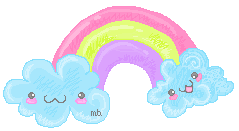 "Source" means the origin of something. An information source is a source of information for somebody, i.e. anything that might inform a person about something or provide knowledge to somebody. Information sources may be observations, people, speeches, documents, pictures, organizations etc. They may be primary sources, secondary sources, tertiary sources and so on. Empiricism regards sense data as the ultimate information sources, while other epistemologies have different views (cf., source criticism).
"Source" means the origin of something. An information source is a source of information for somebody, i.e. anything that might inform a person about something or provide knowledge to somebody. Information sources may be observations, people, speeches, documents, pictures, organizations etc. They may be primary sources, secondary sources, tertiary sources and so on. Empiricism regards sense data as the ultimate information sources, while other epistemologies have different views (cf., source criticism).
 What is Information Literacy?❣ Information Literacy is the ability to identify what information is needed, understand how the information is organized, identify the best sources of information for a given need, locate those sources, evaluate the sources critically, and share that information. It is the knowledge of commonly used research techniques.
What is Information Literacy?❣ Information Literacy is the ability to identify what information is needed, understand how the information is organized, identify the best sources of information for a given need, locate those sources, evaluate the sources critically, and share that information. It is the knowledge of commonly used research techniques. What is Information Overload?
What is Information Overload?  Information overload is a description given to the phenomenon where so much information is taken in by the human brain that it becomes nearly impossible to process it. Alvin Toffler, an academic from Russia, is credited with coining the term. Since the term was first used, it has become very popular, especially in the computer age, though some say information overload is more a time and presentation issue, than an actual data issue.
Information overload is a description given to the phenomenon where so much information is taken in by the human brain that it becomes nearly impossible to process it. Alvin Toffler, an academic from Russia, is credited with coining the term. Since the term was first used, it has become very popular, especially in the computer age, though some say information overload is more a time and presentation issue, than an actual data issue.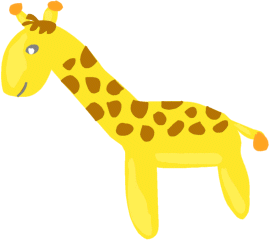 Value of information
Value of information
 information comes to us in a myriad of forms and from a variety of sources including books. videos television. online databases. billboards. web sites. news papers. people and more.
information comes to us in a myriad of forms and from a variety of sources including books. videos television. online databases. billboards. web sites. news papers. people and more.  Users of informationஐ There are many kinds of information users in the modern world, not just personal users. They including users in:☀Business and industry☀education☀research and development☀entertainment
Users of informationஐ There are many kinds of information users in the modern world, not just personal users. They including users in:☀Business and industry☀education☀research and development☀entertainment Business and industry
Business and industry 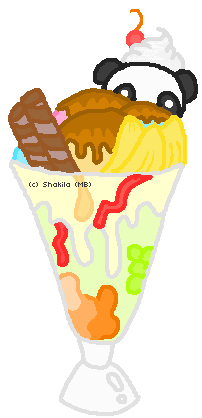 Businesses need information about their industry and trade for comparison generation of new ideas and motivation. Thy need to be able to track competitors and follow trends and markets. Gaining an edge in information is crucial to corporate success. so it is vital to be able to access information quickly and efficiently. Success in business hinges on the quality of analysis and effective use of available information. The information needs to be accurate. up-to-date and supplied quickly.
Businesses need information about their industry and trade for comparison generation of new ideas and motivation. Thy need to be able to track competitors and follow trends and markets. Gaining an edge in information is crucial to corporate success. so it is vital to be able to access information quickly and efficiently. Success in business hinges on the quality of analysis and effective use of available information. The information needs to be accurate. up-to-date and supplied quickly. 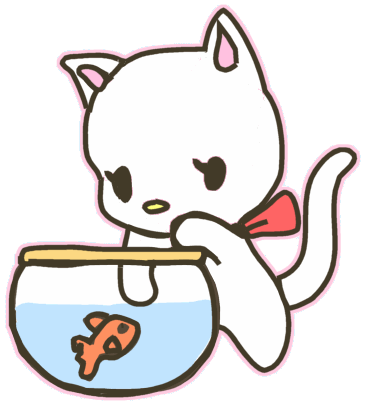 What is mind map ?
What is mind map ? ❤ A mind map is a graphical way to represent ideas and concepts. It is a visual thinking tool that helps structuring information, helping you to better analyze, comprehend, synthesize, recall and generate new ideas.
Just as in every great idea, its power lies in its simplicity.
In a mind map, as opposed to traditional note taking or a linear text, information is structured in a way that resembles much more closely how your brain actually works. Since it is an activity that is both analytical and artistic, it engages your brain in a much, much richer way, helping in all its cognitive functions. And, best of all, it is fun!
So, how does a mind map look like? Better than explaining is showing you an example.

This is a mind map about – conveniently enough – mind mapping itself. It presents, in a visual way, the core elements and techniques on how to draw mind maps. Yes, I know this may look a little too messy initially, but bear with me: once you break the ingrained habit of linear note taking, you won’t look back.

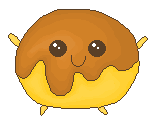 Bibliography
Bibliography
♫ http://en.wikipedia.org♫ http://litemind.com/what-is-mind-mapping/♫ http://www.gdrc.org/icts/i-overload/infoload.html♫ http://thefreshreflection.com/?p=8069♫ http://www.wisegeek.com/what-is-information-overload.htm♫ http://www.webs.uidaho.edu/info_literacy/♫ Access to Library and information systemsYolladee Haruthaiwichitchoke < yok> 54009337






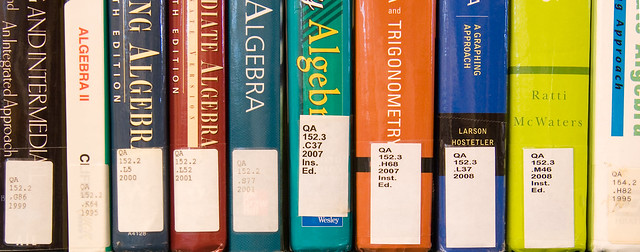







 Data information knowledge wisdom
Data information knowledge wisdom 


 Information good
Information good













